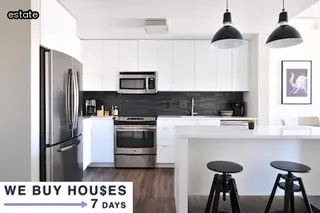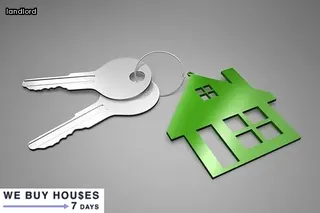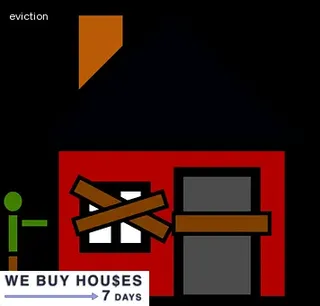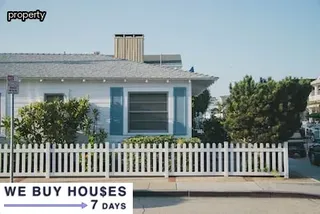The eviction process in South Dakota can seem complicated and lengthy, but understanding the state's laws can help make the process smoother. According to South Dakota law, tenants must be given a minimum of three days' notice before an eviction is filed.
The landlord must also fill out a summons and complaint form, which then needs to be served to the tenant. If the tenant does not respond within five days of being served, the landlord may file for a default judgment.
If the tenant does respond within that time frame, they will have an opportunity to defend themselves against the eviction in court. The judge will then decide whether or not to issue a judgment in favor of either party.
Depending on their decision and any appeals made by either side, it can take anywhere from one week up to several months for an eviction proceeding to be completed in South Dakota. It is important for both landlords and tenants to understand their rights and responsibilities when it comes to evictions in order to make sure all parties are protected during this legal process.

Evictions in South Dakota can be caused by a variety of situations. These include unpaid rent, violation of the terms of lease agreement, damage to the property, or using the property for unlawful activities.
Tenants can also face eviction if they fail to comply with noise ordinances or keep pets without permission. Landlords may also evict a tenant if they are found to be involved in activities that could disrupt other tenants' enjoyment of living on the property, such as hosting large parties or dealing drugs.
The most common reason for an eviction in South Dakota is when a tenant fails to pay rent on time. It is important for both landlords and tenants to understand their rights and obligations under South Dakota state law so that evictions can be avoided.
Knowing how long the eviction process takes in South Dakota is also essential in order to assess any potential risks associated with renting a property.
The eviction process in South Dakota can vary depending on the situation. Generally, it begins with the landlord submitting a notice to the tenant that outlines why they are being evicted and how much time they have to vacate the rental property.
If the tenant fails to comply, then the landlord must file an affidavit of service with the court as proof that they provided proper notice. Once this is done, a summons and complaint will be served to the tenant informing them of their right to appear in court and contest the eviction.
The court will then hold a hearing where both sides can present evidence and make their case, after which a judge will issue a ruling. If the tenant does not contest or if the landlord wins, then an order for possession will be issued which allows them to take back possession of their property.

Filing a complaint to start the eviction process in South Dakota is not as difficult as it may seem. The first step is to prepare a Complaint for Eviction form and have it served on the tenant by either a sheriff or private process server.
This document must include all of the necessary information such as the amount due, the name of the tenant, and the address of the property that is being evicted. Once this has been done, you can file your complaint with your local court.
Once you have filed your complaint, you will be able to receive an answer from your tenant within 20 days. If they do not respond, then a judgment will be entered against them and they will be served with an Order for Possession which will give them five days to move out.
If they fail to comply with this order, then a Writ of Restitution will be issued and a sheriff or constable will come out and remove them from the property.
In South Dakota, the eviction process starts with a landlord serving the tenant a Notice to Comply or Quit. This document must be delivered to the tenant in person, by mail, or posted on the property.
The notice typically gives the tenant between three and five days to either comply with the terms of the lease or leave the premises. If the tenant does not comply within this time frame, then legal proceedings may be initiated by the landlord to remove them from their residence.
Different jurisdictions have different rules on how long this process can take and what steps must be taken in order for it to be valid. It is important for landlords and tenants alike to understand their rights and obligations during this process so that all parties involved can move forward amicably.

When a landlord needs to ask for possession of property in South Dakota, there are several actions that must be taken before the eviction process can begin. First, the landlord must prepare and issue a written notice of termination of the tenancy, which must contain specific information as required by law.
The tenant then has three days to vacate the premises or risk being served with an Unlawful Detainer Summons and Complaint. If the tenant fails to move within those three days, a court complaint is filed and served on the tenant seeking possession of property.
After this is done, the tenant will have 10 days to file an answer with the court or else they will be found in default. Once all documents are filed, a hearing is scheduled where both parties present their case in front of a judge who makes the final decision on whether possession of property should be granted back to the landlord.
Ultimately, it can take up to four weeks for an eviction order to be issued and for possession of property to be given back to the landlord in South Dakota.
When a tenant refuses to comply with their rental agreement or move out, the landlord must go through the appropriate legal channels to evict them. In South Dakota, this process is governed by Title 43 of the South Dakota Codified Laws and begins with the landlord providing written notice to the tenant.
The amount of time that elapses between when the tenant receives notice and when they must leave depends on whether they are being evicted for nonpayment of rent or for violating another part of their rental agreement. If it is for nonpayment, the landlord must give them three days to pay up or vacate; if it is for breach of contract, they get 30 days.
If the tenant does not comply during this period, then the landlord can file an eviction lawsuit with a court in their county. This begins a longer process that may involve hearings and judgments before an order is issued requiring them to leave.
During this period, any fees accumulated as a result of the eviction will be added onto what is owed by the tenant.

In South Dakota, the eviction process is initiated by notifying the tenant. The property owner must provide a written notice to the tenant, commonly called a Notice to Quit, that outlines the reason for eviction and gives the tenant a certain time frame to move out of the property.
Depending on why the property owner is evicting the tenant, this time frame can range from three days up to one month. If there is no response from the tenant or they do not vacate within that period of time, then the landlord may proceed with filing an action in court.
This legal paperwork must be served on the tenant and then filed with the court. The court will then set a hearing date at which both parties can present their case and ask questions of each other.
After this hearing, a judge will issue an order detailing how long it will take for eviction proceedings to take place. Depending on how quickly all parties comply with any orders issued by the court, including payment of back rent or vacating of premises, it can take anywhere from two weeks to several months for an eviction order to be completed in South Dakota.
The eviction process in South Dakota can take anywhere from a few weeks to several months, depending on the severity of the case and how well-documented the evidence is. When a landlord is filing an eviction case, it is important to present a comprehensive set of evidence that clearly shows why they are requesting the tenant’s eviction.
This can include things such as non-payment of rent, lease violations, or property damage. Each piece of evidence should be carefully documented with all relevant details included.
This can include photographs, signed documents, rental agreements, emails exchanged between both parties and any other relevant information that will support the case. It is also important to keep all records in an organized manner so that they can easily be referenced during court proceedings if necessary.
Having organized and detailed evidence will not only help ensure your case is heard quickly but will also demonstrate to the court that you have taken proper action in accordance with the law.

In South Dakota, a landlord/tenant is afforded certain rights throughout the entire eviction process. For instance, a tenant has the right to be given proper notice of an eviction.
This notice can come in the form of a court summons, but it must allow for a minimum of three days before any further proceedings may take place. The tenant also has the right to be present during the hearing, should one take place; if not, they have the right to receive an explanation as to why no hearing was necessary.
Furthermore, tenants are entitled to due process and cannot be evicted without cause or justification. All parties involved—landlord and tenant alike—also have the right to appeal any decision made by the court.
It is important for both landlords and tenants in South Dakota to understand their rights during an eviction process in order to ensure that all legal procedures are followed accordingly and that their rights remain protected throughout the entirety of this sometimes lengthy process.
In South Dakota, the eviction process can take anywhere from a few days to several weeks, depending on the specifics of the case. Generally, an eviction begins when a landlord sends a notice of termination to their tenant and ends when the tenant vacates the property.
However, there are certain steps that must be taken between these two phases in order for an eviction to be legally enforced. The first step is for the landlord to file an eviction complaint with their local court.
Once this is done, the court will then set a hearing date and send notification to both parties involved. The tenant must then appear before the court at this hearing in order to make their case or agree to leave the premises.
If they fail to appear or do not agree to move out, the court may issue a writ of possession which will give landlords permission to physically remove tenants from the property if they do not voluntarily vacate within 24 hours of being served. This entire process usually takes between 15-30 days or longer depending on specific circumstances such as if either party decides to appeal.

South Dakota law allows landlords to evict a tenant without filing a lawsuit. This is known as a self-help eviction, and it can be used in certain circumstances.
However, before taking this route, it is important to understand the risks and potential legal ramifications of such an action. Landlords must be aware that they are not allowed to use force or violence when evicting a tenant, nor can they change the locks or remove any of the tenant's property.
They also must give proper notice of their intent to evict if they choose this option. While self-help evictions can be quicker than going through the court system, they may still take some time to complete depending on the individual circumstances of each case.
Landlords should also consider other options outside of court for resolving an unlawful detainer claim in South Dakota before resorting to self-help eviction measures. These alternatives could include mediation or arbitration services, both of which may provide quicker results with less hassle for all parties involved.
South Dakota landlords and tenants have a variety of resources available to them when it comes to understanding the eviction process. The South Dakota Bar Association provides an online guide outlining the basic steps of the eviction process and explaining landlord-tenant law.
Additionally, the Department of Housing and Urban Development (HUD) offers several resources that can help both landlords and tenants understand their rights and responsibilities. For instance, HUD has a tenant resource page dedicated to providing information on rental agreements, rental payment assistance programs, fair housing laws, and other important topics.
Landlords may also want to consult with an attorney who specializes in landlord-tenant law or contact a local mediator for dispute resolution services. All of these resources can help landlords and tenants better understand how long the eviction process takes in South Dakota.

Navigating the timeline of the South Dakota eviction process can be tricky since there are several steps involved. Landlords must first provide written notice to the tenant, which is typically three days for non-payment of rent or seven days for any other violation of the lease agreement.
After notification, tenants have seven days to remedy the situation and remain in the rental unit. If this does not happen, then a landlord may proceed with filing an eviction case in court.
The court will then schedule a hearing within 10 days of filing and both parties will attend. The judge will then decide whether the tenant should be evicted or if they can stay based on their circumstances.
From there, if an eviction is ordered, it usually takes four to six weeks for a sheriff or constable to serve notice to vacate and enforce the order. Those affected by an eviction should be aware that they may have up to 30 days after being served with notice before having to leave their residence.
In the state of South Dakota, it is important to inspect the unit before and after an eviction. This allows landlords to determine the condition of the property before and after a tenant vacates.
It also serves as evidence if a dispute arises regarding any damage or unpaid rent. Before an eviction, landlords should take notes and photos of any existing damage to the rental unit and document any necessary repairs.
After a tenant has vacated, it is important for landlords to conduct another inspection, documenting any new damage that may have occurred during their occupancy. While the eviction process in South Dakota can be lengthy depending on the circumstances, inspecting the unit before and after eviction is an essential part of ensuring that both tenants and landlords are protected throughout this process.

Putting your eviction process on to a streamlined system can provide many benefits. It can save you time and energy, as it eliminates the need for paperwork and manual tracking of deadlines.
In South Dakota, where the eviction process can take anywhere from 10 days to several months, streamlining your eviction process can drastically reduce the amount of time you spend managing your portfolio. Furthermore, streamlining your eviction process also helps to ensure all legal requirements are met, as well as reduce potential risks and costs associated with making mistakes or missing deadlines.
With a streamlined system in place, landlords in South Dakota may find they have more time and resources available to focus on other aspects of their portfolio. Additionally, having an organized system makes it easier for landlords to quickly access important documents and information related to their evictions.
Finally, by utilizing a streamlined system landlords will be able to better track rental payments and tenant information in order to protect themselves from potential losses due to non-payment or damages caused by tenants.
In South Dakota, there are a variety of free downloads and tools available to help tenants and landlords understand the eviction process. The South Dakota Landlord Tenant Act outlines the eviction process and is available for download from the South Dakota Bar Association website.
The Landlord-Tenant Law in South Dakota guide by Nolo is another useful resource, providing an overview of state-specific laws that apply to rental properties. Additionally, the Self Help Center at the South Dakota Legal Services offers online videos and documents related to landlord-tenant law.
Finally, local court websites provide forms such as summonses, complaints, and notices to vacate that can be completed online prior to filing with the court. All of these resources are available at no cost to aid in understanding the length of time needed for an eviction case in South Dakota.
Eviction is a process that can take time and money, but it's important to understand the specifics of how long it takes in South Dakota. The eviction process in South Dakota can be lengthy and involves multiple steps, so it’s important to know how long each step may take.
The initial notice period for an eviction in South Dakota typically lasts three days if the tenant has failed to pay rent on time and seven days if they are violating the lease agreement. After the notice period has ended, the tenant must either move out or file a written request for a hearing with the court within five business days.
If a hearing is requested, a date will be set for a court hearing where both parties can argue their case. Once this hearing has taken place, the judge will issue an order giving the tenant three days to vacate or face forced removal.
In total, an eviction process in South Dakota can take anywhere from two weeks to several months depending on whether or not a court hearing is requested by the tenant. Knowing how long each step of an eviction process may take can help landlords and tenants alike plan accordingly and ensure that all state laws are followed throughout the entire process.

If you are facing eviction in South Dakota, it is important to understand the eviction process and how to fight it. The eviction process in South Dakota can take anywhere from 30 days to six months, depending on the situation and how quickly each step is completed.
In order to fight an eviction, you must first understand your rights as a tenant, which include the right to receive a written notice of eviction and a court summons. You should also be aware of any state or local laws that may protect you against unfair evictions.
Once you have been served with an eviction notice, it is important to respond within five days by filing an answer in court. This answer should include any defenses that you have against the eviction as well as any evidence that supports your argument.
After filing your answer, a court hearing will typically take place where both parties will argue their case before a judge who will then make a decision on whether or not the eviction will proceed. While fighting an eviction can be difficult, understanding the process and knowing your rights can help ensure that you are treated fairly throughout the process.
South Dakota is seen as a landlord friendly state due to its relatively short eviction process. The typical length of the eviction process in South Dakota is only 20 days, much shorter than the national average.
Landlords in South Dakota benefit from swift evictions and more control over their property. South Dakota provides landlords with options for evicting tenants who do not follow the lease agreement or pay rent on time; the state allows landlords to use an expedited eviction process which requires tenants to leave within 3 days of receiving notice.
This makes it easier for landlords to quickly regain control of their rental properties if tenants are not meeting their obligations. With this fast-track option, South Dakota's eviction process is one of the most efficient and landlord friendly in the nation.
In South Dakota, a landlord must return the security deposit within 30 days of the tenant's vacating the premises, or within 45 days of termination of the lease. The landlord may withhold from the deposit any amounts due for unpaid rent and other charges, damage to the property beyond normal wear-and-tear, or cleaning costs.
The landlord is required to provide an itemized statement of deductions along with the balance of the security deposit. If any portion of a security deposit is withheld by a landlord in South Dakota, they must provide written notice explaining why it was withheld and how much was withheld.
Eviction proceedings in South Dakota can take anywhere from two weeks to four months depending on certain factors such as how quickly paperwork is filed and how quickly a court hearing is scheduled.
A: In South Dakota, the eviction process typically takes between two and three weeks, depending on the court's schedule and any additional legal requirements that may be necessary.